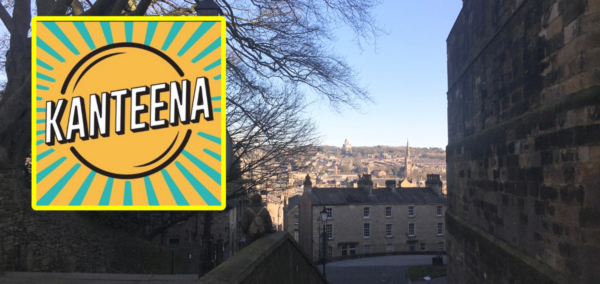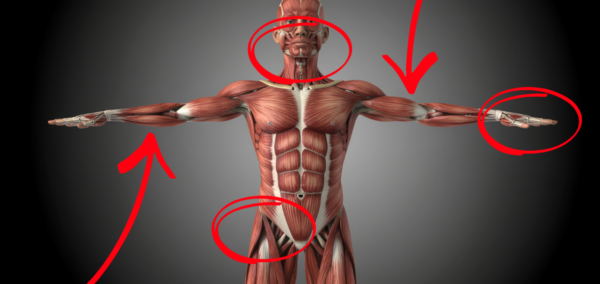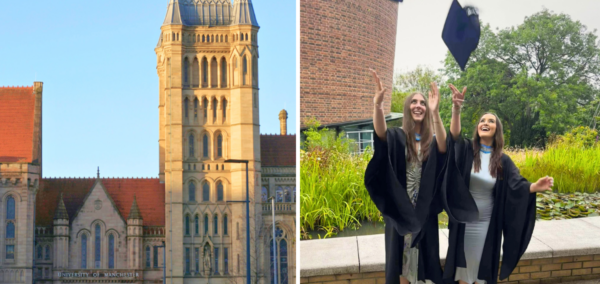
The attainment gap is widening in Scottish universities, how is Glasgow Uni tackling this?
How does the ‘University of Sanctuary’ support its non-typical students?
The attainment gap in Scotland between the most and least disadvantaged is widening.
A report published by UCAS at the beginning of 2023 found that since 2018, the difference between the number of these two groups being accepted into university has increased from 6.1 percentage points to 9.2 percentage points in 2022.
This comes after a large increase of students from affluent Scottish areas being accepted into universities, with 78.3 per cent being accepted in 2022, up from 75.1 per cent in 2018. This is a dramatic increase, especially when compared with the stagnant 0.1 per cent increase in students from the most deprived areas.
Another survey published by the Office for National Statistics discovered that 92 per cent of students responded stating that their cost of living has risen considerably from the previous year. This has resulted in many students having to resort to taking up part-time or full-time jobs alongside their studies to make ends meet.
The same survey found that 30 per cent of responders stated that they had to work more hours due to the rising costs.
Ella, a 26-year-old who responded to this survey spoke of the difficulties of balancing university and employment. She said: “I would have dropped my job when I started uni when I learned how hard it would [be] to balance it, but because everything had gone up, I had to keep it.”
Students having to choose between hours at work and hours in the library has left many exhausted and worn out, with just under half (46 per cent) of survey respondents reporting that their mental health and well-being had worsened.
What is being done at Glasgow University in an attempt to combat this gap in attainment?

Most Read
In an attempt to tackle the poverty gap expanding within higher education, Glasgow University’s “Widening Participation” programmes aim to prepare non-typical students for transition into higher education, both at the GU institution and across Scottish higher education.
Widening Participation (WP) runs many programs, such as summer schools, working annually with a reported 10,000+ pupils in 160 secondary schools across the West of Scotland.
Additionally, the success of the WP Department has been acknowledged across UK Higher Education, as the University of Glasgow was awarded the University of Sanctuary status last year. This is due to their commitment to supporting people who have experienced forced migration, with 20 scholarships being awarded annually to students who have been forced to travel to the UK for humanitarian reasons, covering all tuition in addition to a £5000 stipend each year.
The WP Department also offer “Top-Up” programmes, which has been described as one of the first successful initiatives in the UK at tackling the attainment gap between the most and least deprived areas. Essentially, post-graduate tutors facilitate sessions in high schools across Scotland, introducing fundamental skills required to be a successful independent learner in Higher Education.
In these sessions, pupils participate in seminars and are given an authentic taste of what the Higher Education experience is like. The results indicate that there have been far more applicants to Glasgow Uni and other Higher Education Institutes due to these sessions being run.
Below are some Glasgow students’ opinions gathered from a questionnaire about these Top-Up sessions and the WP Department as a whole:
A Glasgow student, Rebecca, said the program really helped: “I don’t think I would’ve gotten in without widening access programs, also they helped me learn stuff like references a bit before I came to uni so I wasn’t completely lost.”
Harvey* a fifth year student spoke of the programme as beneficial for students in disadvantaged schools: “I took part in the Top Up programme run by the university which I believe targeted some of the underachieving secondary schools in Scotland.
“I don’t feel that the programme itself taught anything particularly valuable as honestly I can’t think of any useful skills I got from it. But its overall value as a relatively easy way to lower the entry requirements for disadvantaged schools is good.”
Robyn, an English literature and history graduate, said: “ I was part of a widening participation programme (Top Up) when I applied to UCAS in 2018, and found it such a massive help. My school had really poor attainment rates at the time and was in quite a deprived area of Glasgow.
‘I am really, really grateful for having been a part of it and was able to attend the University of Glasgow, where graduated last year with first class honours, which I definitely would not have been able to do if these widening participation programmes were not available to me!’
Most feedback received was extremely positive, with only a few commenting on things that could be improved upon.
Martyna, who studies architecture, spoke of the “good impact” the programmes have and their potential: “Overall I think the widening participation programmes have a good impact and are really beneficial however there is potential that many students who would benefit from it don’t even know that it is available to them and participation levels in the courses can sometimes be quite low.”

Neil Croll, the Head of Widening Participation and Lifelong Learning at Glasgow University, described the impact of his team’s Top-Up programme across the last 20 years as “a real success story”.
The WP department at the University of Glasgow has been nationally recognised for its efforts to combat the widening poverty gap in Higher Education. Yet, with the rising cost of living and the cost of university life (with some events costing upwards of £50 a ticket), is enough being done?
Many courses at Glasgow University require mandatory field trips as part of your degree. Yet, these are mandatory they can cost students upwards of a hundred pounds each, which for some students means they have to spend more hours at their part-time job in order to afford such an expense.
Second year geography’s mandatory field trip running in March or April costs £120 per student, and with the national minimum wage for 18 to 20-year-olds being £7.49, this trip will cost many students over 16 hours of pay. Hours that could be spent revising, money that could be spent on bills and groceries.
After speaking to Cara*, a second year student at Glasgow University, she disclosed how she has struggled over the past few months with juggling her part-time job and university work. Working a retail job during the run-up to Christmas makes for extremely stressful shifts, this combined with the current exam season is taking a toll on her (and many other students’) mental health.
‘Working a part-time job while trying to keep up with all my university work is a real struggle. My life constantly feels like a cycle of work, study and stress, it’s exhausting. But I don’t have a choice, if I wasn’t working I could not afford uni.’
Though the attainment gap at uni is not a new concept, neither is the institution’s repeated failures in falling short of lessening this gap greatly.
Far more young people are opting for degree apprenticeships, which have seen a 12 per cent increase in starters compared to last year. Most people would agree that the idea of being paid whilst completing a degree – followed by a likely guaranteed job in the future – sounds pretty great.
Undoubtedly, more needs to be done within Scotland to tackle the growing number of disadvantaged students bearing the burden of social and financial isolation from their peers due to their economic situation.
*Names changed to retain anonymity


















